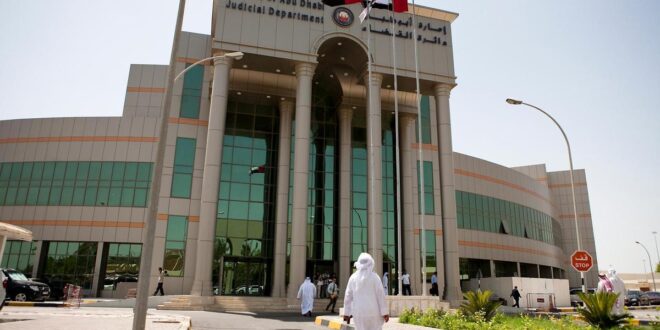A Will is a crucial legal document that gives you the ability to designate beneficiaries who will receive your assets and to indicate how you would like them to be distributed. As in any other country, having a Will in place ensures the financial stability of your family in the future. This also applies to the UAE. You can protect your assets located in any of the seven (7) emirates of the United Arab Emirates by registering a will in Abu Dhabi.
In Abu Dhabi, Wills are registered through the Civil Family Court – ADJD Civil Wills Office at the Abu Dhabi Judicial Department (ADJD). Will registrations be accepted by ADJD from both Muslims and non-Muslims. Know more about ADJD Wills, here.
An Abu Dhabi Will can be registered by any person over the age of 21 who possesses assets based in any of the UAE’s emirates. Even if you live in another emirate, you can register a will in Abu Dhabi. Remember that you can create a will in Abu Dhabi even if you don’t live in the United Arab Emirates.
Additionally, Wills can be registered in Abu Dhabi by Muslims and non-Muslims alike. You can cover mobile assets (money, cars, etc.), immovable assets (land, buildings, etc.), bank accounts, etc. with a registered will.
Registration Process in Abu Dhabi

The ADJD Will registration procedure goes like this:
- A conference call appointment will be set up with the ADJD to register your will.
- Your Will must be signed and uploaded to the ADJD website.
- During the call, your identification will be confirmed.
- An electronic copy of your registered Will will be submitted to the ADJD portal upon completion of the registration process.
- An ADJD will be prepared and registered in a matter of seven to ten days with minimal effort.
The following information is contained in the final copy of the ADJD Will:
- Testator’s ID
- Official ADJD stamp
- Payment receipt
Perks of Making a Will in Abu Dhabi
You can gain many advantages from having a Will if you register it with ADJD. Among the numerous benefits you will experience are the following:
- Reasonably priced registration ─ As of the time of writing, the cost of registering a will in Abu Dhabi is only AED 950 for a single will and AED 1900 for a mirror will.
- Online signup ─ You can complete the ADJD Will registration process remotely from any location in the world.
- Modify at any moment ─The Wills may be amended at any time after registration. The amended Wills must be re-registered to be effective.
- Witnesses are not necessary ─ Witnesses do not need to be present for the registration process of an Abu Dhabi will.
This is how registering a will in the United Arab Emirates can benefit you as a Muslim.
Decide Who Will Benefit From It

A beneficiary is a person who is qualified to receive your assets by your will. You get to pick who your beneficiaries are and how much of your money goes to them. Nor is it necessary to get permission from any individual to do so. This implies that you are free to divide your assets whatever you see fit as a Muslim.
The spouse is designated as the first beneficiary and inherits all assets under a distribution system that is frequently observed among married couples in the United Arab Emirates. To provide for situations in which the first beneficiary—also referred to as the principal beneficiary—does not survive the testator, you can include several tiers of alternate beneficiaries in your will.
Children are typically designated as the alternate beneficiaries and are entitled to receive an equal portion of the assets, based on observations made in the United Arab Emirates. Parents, siblings, and other relatives typically make up the next tier of beneficiaries.
Select Guardians
A guardian is the person designated to look after the child’s financial needs and will make all significant choices regarding the child’s upbringing. You may designate guardians for your minor offspring (those under 21).
You can designate the individual of your choosing to be the child’s guardian by creating a will. In the United Arab Emirates, the spouse is typically designated as the guardian of choice, while the testator’s parent or sibling is designated as the alternate guardian.
In general, the guardian may be of any nationality and may or may not be related. The sole legal prerequisite for eligibility for guardianship is the individual’s age, which must be at least 21. It is important to remember that under UAE public policy, a guy who is unrelated to a female minor child cannot be named as her only guardian. A male and a female can be appointed jointly in certain situations.
Designate Executors

An executor is the person in charge of carrying out a will’s instructions. At some point, the executor will be given general authority to distribute your assets. It makes sense that you would want someone reliable and competent to take on this role.
It is within your power to designate a person of your choosing to serve as an executor. In most cases, a spouse is named executor of a will created in the United Arab Emirates.
As an executor, you can generally designate any member of your family and friends, or you can appoint an attorney or chartered accountant. Should a person have a history of bankruptcy or a criminal conviction, they could not be qualified to serve as an executor.
If the principal executor declines to carry out the responsibilities or is unable to do so for whatever reason, you may designate a substitute executor. You may designate a substitute executor among your friends or family.
Your loved ones can run into issues if you leave a will without an executor. Among the problems that are likely to arise are a drawn-out probate procedure and a potential family quarrel.
Quick Probate Process
The court will use the probate process to distribute your fortune to your legitimate heirs. According to Shariah law, the courts will decide who is entitled to your possessions if a Will has not been left behind. If there is no registered Will, the probate process may prove to be an arduous undertaking.
In addition, the deceased’s bank accounts and assets might continue to be frozen, which would cause more issues for the deceased’s family.
Conversely, if your will is registered, you can take advantage of a speedy probate procedure. In this manner, your assets can pass to your loved ones without the need for an expensive and time-consuming probate process.
 Hi Boox Popular Magazine 2024
Hi Boox Popular Magazine 2024



